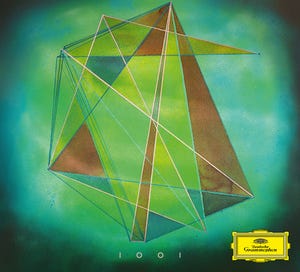Title: 1001
Artist: Dustin O’Halloran
Label: Deutsche Grammophone
Publishing Date: 2024
Welcome to Vintage Cafe, a reader-supported newsletter exploring music, film, books, art, travel, and coffee. By subscribing for just $6 a month, you support independent writing and unlock exclusive content.
Dustin O’Halloran’s 1 0 0 1 feels less like an album and more like a meditation—a quiet, expansive space for reflection in a world that often feels too fast, too loud, and too mechanical. From the first notes, it’s clear this work is deeply personal, not only for its creator but also for anyone willing to lean into its introspective depths. O’Halloran has crafted an intricate exploration of humanity’s relationship with technology, presenting it not as a dystopian clash but as a nuanced conversation. This is music that doesn’t rush to conclusions; instead, it invites you to sit with questions that linger long after the last note fades.
Recorded at RRO Studios in Reykjavik, 1 0 0 1 is an aural tapestry that merges acoustic and electronic textures, creating something both timeless and thoroughly contemporary. Collaborators like Bryan Senti on violin, the Budapest Art Orchestra, and Paul Corley on electronic production all play vital roles, yet the album never loses its singular, cohesive voice. O’Halloran’s mastery lies in his ability to weave these disparate elements into a seamless whole, offering a listening experience that feels like stepping into a vast, contemplative landscape.
The album opens with “Spiritus Naturae Aeternus,” a piece that feels like a slow unraveling of the natural world. Latin for “The eternal spirit of Nature,” it captures both the beauty and chaos of existence. Female voices float ethereally above a foundation of strings and piano, gradually fragmenting into echoes that dissolve like fading memories. There’s a tactile sense of impermanence here, as though O’Halloran is reminding us how fragile the natural order can feel in the shadow of advancing technology. It’s a haunting yet delicate introduction, setting the tone for the philosophical questions that underpin the rest of the work.
Keep reading with a 7-day free trial
Subscribe to Vintage Cafe to keep reading this post and get 7 days of free access to the full post archives.





